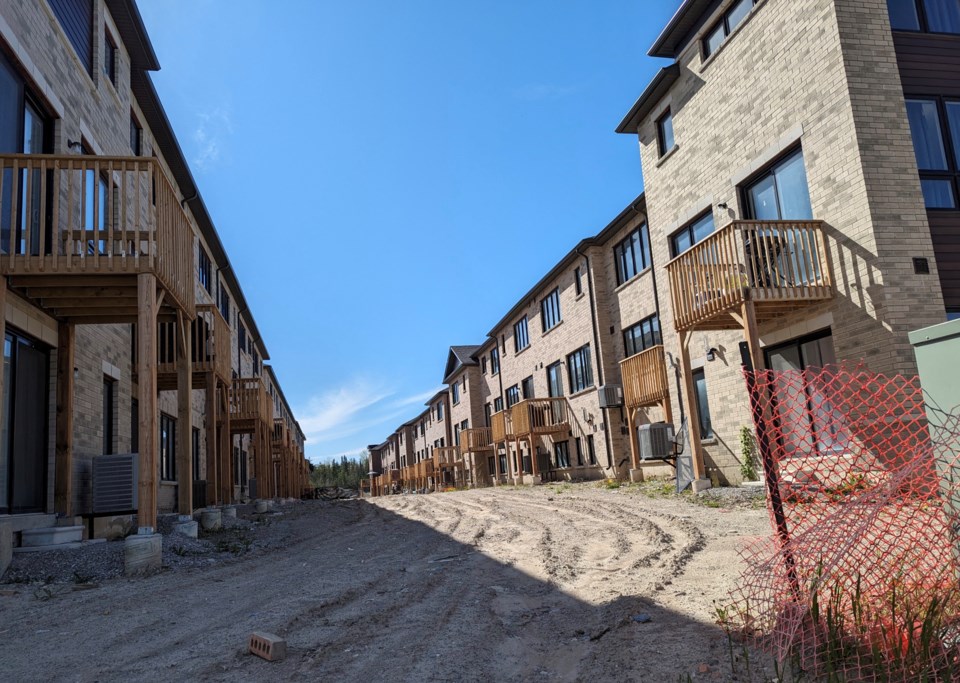There will need to be a historic number of homes built in Ontario over the next several years if the province will meet the Ford government's housing affordability-easing target, according to a new report by the Financial Accountability Office of Ontario.
In February 2022, the Housing Affordability Task Force appointed by Premier Doug Ford's government said in its final report that Ontario must build 1.5 million homes by 2031 to address the housing shortage that is contributing to prices putting home ownership out of reach for many who live in the province. Later that year, Ford's Progressive Conservatives committed to the 10-year target its task force called "ambitious but achievable."
To reach the target, almost twice as many new homes would need to be built yearly as there were, on average, during the PCs' first three years in power.
Little headway has been made on reaching the target, based on the original metric: housing starts reported by Canada's national housing agency. According to Canada Mortgage and Housing Corporation (CMHC) data, from the beginning of 2021 until the end of March 2024, Ontario had 303,112 housing starts — just over 23,300 units per quarter.
Housing starts recently, especially, have not bode well for the PCs' chances of having Ontario reach its target. There were 89,300 CMHC-counted housing starts in Ontario last year, the fewest since 2020. Housing starts in the province in the first quarter of 2024 were also down compared to the previous year.
Late last year, the Ford government adjusted how it's measuring its progress toward its 1.5 million new homes by 2031 target by adding new long-term care home beds to its tally. It's since also added additional residential units — converted basements, laneway suites, and the like — to its count as well.
The report the Financial Accountability Office (FAO) released on Wednesday was on Ontario's economic performance from October 2023 to March 2024.
Relying on the metric the government originally counted toward its housing goal, the FAO determined the government would need to average 38,600 starts each quarter — a 66 per cent increase in pace per quarter since the beginning of 2021. The most CMHC-counted starts ever recorded in a quarter in Ontario's history was 34,400 in the third quarter of 1973.
Paul Lewis, deputy FAO and the office's chief economist, explained on Wednesday that the increase in interest rates following the COVID-19 pandemic "really took the steam out of the housing market," which has impacted housing starts.
"Since demand for housing has been easing because of high mortgage carrying costs, and other factors, since early 2023, the pace of housing starts has been dropping," Lewis said.
Opposition MPPs at Queen's Park said Ford's PCs can blame themselves for its housing target seeming to slip out of reach, especially considering the Greenbelt scandal and the many housing policy reversals it sparked, and the government's unwillingness to legalize housing-enabling policies, like as-of-right fourplexes.
"We are way behind .... because the government was wasting time and money with policies that just simply rewarded their insider, land-speculator friends," NDP and official Opposition Leader Marit Stiles said. "They spent more time in reverse than they have moving forward — and here we are. And I will add, this is a government that refuses to do the courageous things like moving forward on fourplexes."
MPP John Fraser, the Liberals' parliamentary leader, said the 1.5 million new homes by 2031 target is becoming out of reach "because this government spent so much time trying to make it about land speculation."
Fraser said while it's "fair" to attribute some of the blame for decreased housing starts to the ripple effects of high interest rates that the Ford government hasn't enabled developers with "stability and consistency."
"If the land you thought you were going to build on (can no longer be built on), or you were going to be given development charges and then you weren't going to be given development charges, how can you run a business that way, if the government keeps changing the rules?" Fraser said.
Green Leader Mike Schreiner said the problem is that "the premier refuses to legalize housing — fourplexes as-of-right as an example."
"If developers are going to build homes, they need a stable policy environment and we haven't had that in Ontario," Schreiner added.
Schreiner and Liberal MPP Adil Shamji, his party's housing critic, each pointed to British Columbia as an example of a jurisdiction affected by the same interest rates as Ontario that has made better progress on addressing housing supply challenges. Late last year, B.C. passed a law encouraging more multiplex development.




